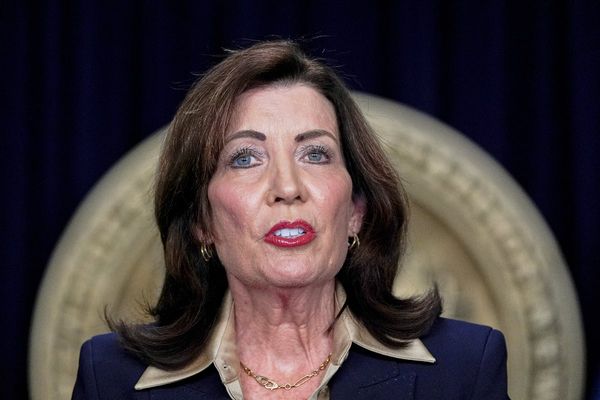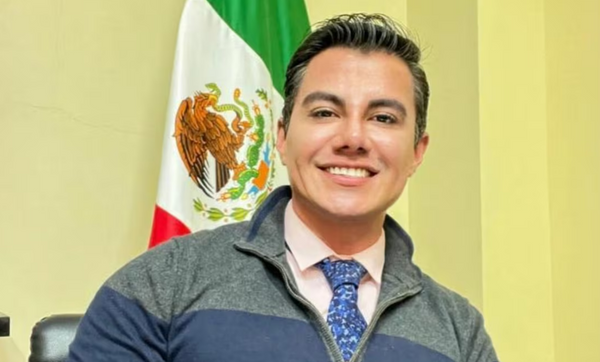
As UN member states gathering in New York this week to finally knock out a long-awaited treaty on the high seas announced “significant progress” with just one day left in the talks, a main stumbling block remained: how to fairly share “marine genetic resources” (MGR) and the eventual profits.
The conference president, Rena Lee of Singapore, urged delegates to “stay focused and get the job done” yesterday on the penultimate day of talks. But the contentious issue of MGR, which caused the last round of negotiations – officially called the Intergovernmental Conference on Marine Biodiversity of Areas Beyond National Jurisdiction, or BBNJ – to fail in August, has driven a wedge between developed and developing nations.
Developed nations, with the technology and resources to scour the seas for new products, agree on benefit-sharing of MGR, but disagree on aspects of it, including questions over what, when and how. Developing countries, who do not have such resources or capacity, argue that benefit-sharing should be guaranteed and clarified in the treaty text. One delegate from an African country, who did not want to be named, said there was “a lot of insensitivity and privilege” on display as compromise was sought.

The problem, according to NGOs, is one of “trust and solidarity” between industrialised and non-industrialised nations, and goes to the heart of the question of who owns the high seas.
Michael Imran Kanu, the head of the African Group, and ambassador and deputy permanent representative to the UN for legal affairs of Sierra Leone, said the “major concerns” this week have been the “material scope and fair and equitable sharing of benefits – both monetary and non-monetary – of MGR” and related genetic data.
“Obligation to share monetary benefits should be included in the text,” he said.
“The major point is that all monetary benefits will go into conservation and sustainable use, hence remediating the global biodiversity crisis created by the developed states with activities in the high seas.”
Delegates have been reluctant to speak out so close to the deadline on talks, which are due to end today. But in the early hours of yesterday morning, after attempts to reach a compromise on MGR, a delegate from Seychelles, Jeremy Raguain, tweeted: “Right now, on a critical component of the #BBNJ #IGC5, #MGR the global north (15% of the world’s population) are not only risking our chance for conserving & sustainable using the #highseas & #ourocean, but also disenfranchising the global south (85% of the world’s population).”
In another tweet, which quoted the G77 and China saying “there is still work to be done”, Raguain said: “We don’t understand the global north’s approach. It is not in line with @Unbiodiversity or progressive international law.”
Agreement on benefit sharing genetic resources is “the key to unlocking the treaty in the final days”, according to Li Shuo, a senior global policy adviser for Greenpeace.
“Marine genetic resources is a key sticking point. If you have a deal on marine genetic resources you bring lots of developing countries on board and they do not oppose marine protection. But you have to give them the resources. It’s a bargaining tool.
“It’s about trust and solidarity between the global south and the global north. It’s about who the high seas belong to – that aspect is more important than the dollars. If the high seas belong to everyone, the money needs to be shared by everybody.”

Developing countries, who have been burned by the promises of developed countries before, for instance in the Paris climate agreement on funds for loss and damage, want the security of knowing finance from MGR will be there in the future, he said.
“Some feel there is not that clarity,” said Li. “There will be some upfront finance from developed countries. But they will only decide whether there will be money in the future, after commercialisation.”
The EU pledged €40m (£35m) through the Global Ocean Programme towards the early ratification of the new treaty. It was an example, NGOs say, of leadership among developed countries in moving towards compromise.
Speaking in plenary yesterday, Aurore Maillet, the deputy head of the European Commission’s Directorate-General for Maritime Affairs and Fisheries, talked about the importance of monetary benefit-sharing, saying “we are not far from each other”. She told delegates, “we have a duty to finalise this agreement” and assured “the funds will be there when the agreement enters into force and also for implementation”.
The potential monetary value of MGR is huge. Marine organisms have already given rise to successful drugs, including Halaven, a blockbuster anti-cancer drug derived from a Japanese sea sponge that has annual sales of $300m ($250m), and remdesivir, an antiviral drug approved for use against Covid-19.
Daniel Kachelriess, a marine genetic resource specialist for the High Seas Alliance, a network of 40 NGOs, said: “The mandate for the general assembly to negotiate the BBNJ treaty was on the basis of four elements: marine genetic resources; area-based management tools; environmental impact assessments; and capacity building and the transfer of marine technology. Delegates have always expressed a view that they should be advanced in lockstep and balanced against each other.”
But while significant progress has been made in the other parts of the agreement, delegates are “still quite far apart in how close we are to the finish line with marine genetic resources” Kachelriess said.
Further complicating the issue is the fact that genetic resources do not just include physical organisms, but gene sequence data known as Digital Sequence Information (DSI). In December, Cop15, the convention on biodiversity, set up a mechanism requiring the private sector to pay into a fund, expected to generate up to $15m a year from companies that use DSI on genetic resources. The African group wants the high seas treaty to take into account the work of Cop15 and to include DSIs in benefit sharing.







